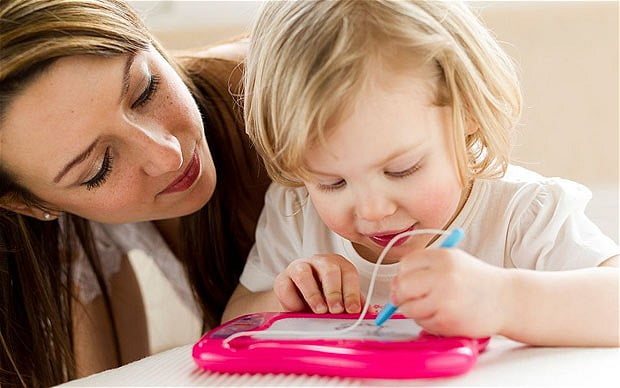About 15 years ago I was in the grocery store. Having picked up what I needed, I was lined up at the checkout behind a lady who had a full cart and a little boy who looked about 4 years old. As she started unloading her cart onto the belt, the little boy reached for the gum and chocolate displayed within convenient reach. “Mom, can I have some of THAT?”
We all know that having candy available right next to the checkout is a diabolical scheme set up specifically to lure small children and annoy their parents into making purchases they otherwise wouldn’t consider. But in this case, Mom held firm. “Look, we have a roast and your favorite veggies and even some ice cream for dessert. Grandma and Grandpa are coming over for a special dinner. So no candy today.”
I swear to you that at this point, the little boy was fine. He’d asked, Mom had answered. But then she added one little word. She said, “Okay?”
There were a couple of beats of silence as the little boy considered his options. I watched in fascination as the wheels turned in his head. Mom had now asking for his OPINION. So it seemed like she wanted to know if it was okay with him if he missed out on the candy. And of course he said: “NO! I want the candy!!”
It seemed to the mom that her boy was giving her a hard time, so she told him again, “No candy… “…Okay?”
Needless to say, after this the two did not see eye to eye. The little boy screamed, Mom scolded. Bribery from the harassed checkout lady didn’t work, because by now the little boy knew that not only was he not going to have any of that candy, but also that Mom could care less what he thought. After all, she kept asking for his opinion, he kept telling her and she kept right on ignoring him!! Geez! (I could imagine him thinking – just wait until I’m a teenager, I’ll show you!)
L. Ron Hubbard says this about control:
“You are stating a greater truth when you say that control is predictable change than if you say control is start, change and stop because start and stop are, of course, necessary to change. You might say the thinking or philosophic definition would be predictable change.” (From Lecture on March 10th 1957, Referenced in the Technical Dictionary)
The bottom line is that beings really don’t “natively” fight good control. Control applied with firmness and kindness is a relief. But the silly mechanical additive of “okay?” without any meaning behind it can wreak havoc with good, predictable, control. In the above story, if the mom had gone ahead and given her boy the candy she had told him he could choose about, that would’ve been fine. She would have respected his opinion. But by adding “okay?” at the end of a COMMAND instead of simply stating what she wanted, she left her boy confused and angry.
I wouldn’t be surprised if this one little word, this one little faux pas, plays a large part in the rebellion we feel is “normal” in teenagers today. Because if you grow up being “told” day in and day out that your parents don’t care what you think, why should you care what they think?
Mr. Hubbard continues on the subject of control and children:
“How would you like to be pulled and hauled and ordered about and restrained from doing whatever you wanted to do? You’d resent it. The only reason a child “doesn’t” resent it is because he’s small. You’d half murder somebody who treated you, an adult, with the orders, contradiction and disrespect given to the average child.” (From How To Live With Children, Scientology Handbook.)
So there you have it; the subject of controlling children is really not that difficult. It starts with the small things, the mechanical things that, mishandled, can blow up into huge problems. I’ll go over more aspects of good control and children in coming articles, but this is the simple starting point: make sure your commands really are commands.
ML,
Sandy Mesmer
Mace-Kingsley Family Center
(25 years working with Children)
727-442-3922






